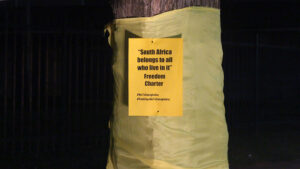The ripples from the final Truth and Reconciliation Commission hearing and report held in Ottawa early this month after five years of hearings across Canada are far-reaching and damning. Almost no one in the religious and political establishment is left untouched.
During this process thousands of victims recounted stories of cruelty and abuse at the hands of those entrusted with their care. The heart-breaking accounts—almost all videotaped—will now form part of a lasting record of one of the darkest chapters in this country’s history.
The chilling term now coming into our consciousness and conversation is “cultural genocide,” a concept launched by Justice Murray Sinclair of the TRC, which visited some 300 communities since 2010. It is now well-known that the tools used were the residential schools sanctioned by the state but run by the churches to, in the language of the report, “destroy those [indigenous] structures and practices that allow the group to continue as a group, such as language, spiritual practices, land use, freedom of movement, and intergenerational bonds and knowledge transfer.”
While the state has apologized through Prime Minister Harper in 2008, Justice Sinclair is calling now for specific action to fulfil the spirit of that apology. The Commission has come up with 94 recommendations that embody that action, including a call for a national public inquiry into missing and murdered aboriginal women, a request for the Pope to apologize for the Roman Catholic’s role in the residential school system, and for Canada to fully adopt and implement the United Nations Declaration on the Rights of Indigenous Peoples.
So how do Mennonites fit into this national tragedy? While we were not any of the direct offenders in the residential school fiasco, we are complicit in that we benefitted from the land grab that occurred with the European colonization of this country early in the 20th century when, persecuted by the Russian state, many of our families found refuge and opportunity for a new life here in Canada.
The only evidence of abuse in Mennonite-run residential schools is the one noted by Ontario historian Sam Steiner at one of Northern Light Gospel Mission’s schools known as Poplar Hill in northern Ontario, where an official investigation showed “no evidence of sexual abuse by teachers or staff. The primary complaints were the use of the strap in corporal punishment and the destruction of aboriginal culture.”
Preoccupied mostly with our own survival during this dark period of Canada’s history, we are only now, in this generation, gaining awareness that we are the “settlers” who prospered at the expense of our indigenous neighbours about whom we had only vague ideas of how they were shunted off to reserves and hidden from sight.
At a deeper level, though, the implications of this “cultural genocide” points the finger at how our so-called evangelistic efforts were misguided and harmful to the people we most wanted to reach, not only in the stolen lands of Canada, but globally as our missionaries and church emissaries, with all good intentions, considered the indigenous peoples as pagans needing to, first of all, rid themselves of the demonic in their cultures. There was no recognition that these various cultures had any form of “spirituality.”
Fortunately, our present mission efforts have deserted that mentality and instead have made every attempt to find God at work within the culture and not outside of it, to recognize that our God is much, much bigger than our own provincial experiences and religious history.
We also need to acknowledge that, in forming our mission approaches and strategies, we were too much influenced by the larger culture which formed us. Colonialism was the political and economic engine that drove our domestic and foreign policies, and subconsciously our missionary efforts fit right into that ethos. The goal was to “civilize” and “educate” these pagans as a part of receiving the light of Christ. What we missed was seeing how God was endemic in their culture already and rather than incorporate that into our efforts, we felt the need to rid them of those “un-spiritual” qualities. We now know that this was a mistake.
God has and is stretching us as we become more and more aware of his mighty power in our lives and in the lives of many people. Humbly we recognize he has been working in many cultures. We just need to tune in.
That is our takeaway from the Ottawa Truth and Reconciliation Commission events.
See also:
“How complicit are Mennonites in Residential School Abuse?” Evelyn Rempel Petkau attended the first TRC hearings and spoke with Mennonites about whether the church might be complicit in the system. (2010 report)
“Children taught to hate themselves says TRC report”– Highlights of the concluding document and events in Ottawa surrounding its release on June 2, 2015. (TRC 2015)
“Strengthening our connections”- Ottawa Mennonite Church hosted an event of storytelling and worship as a response to victims of residential schools. (TRC 2015)
“Kairos hosts Time for Reconciliation”– The ecumenical justice coalition Kairos organized a gathering complementary to the official TRC events happening in Ottawa. (TRC 2015)
“We’ve heard the truth. Do we have the courage for reconciliation?” J. Neufeld attended a TRC solidarity event in Winnipeg and reflected on how Mennonites might have benefitted from past mistreatment of their aboriginal neighbours. (TRC 2015)
“Thoughts on Peru and the TRC”– Dave Rogalsky reflects on how 16th century attitudes against the Incas of Peru might relate to Christians’ attitudes toward people of other cultures and faith today. (TRC 2015)







Leave a Reply
You must be logged in to post a comment.